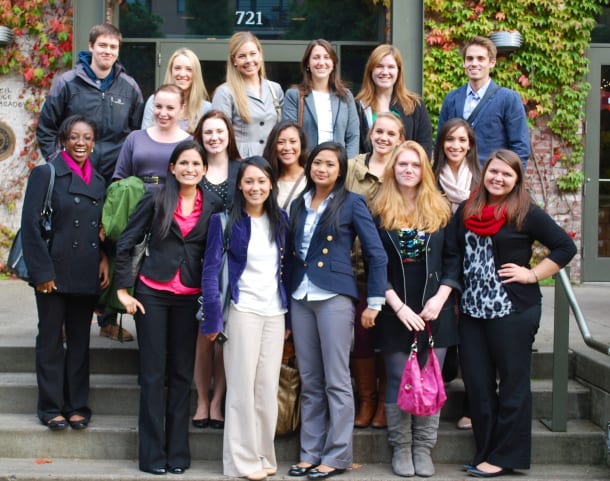There are many pieces of the job search process that are out of your control: job availability, who else is applying, how organizations find candidates, etc. Therefore, focus on what you can control. One of the earliest career development theories proposed, Planned Happenstance, suggests that one must acknowledge the presence of chance in the career planning process, but also work to increase the likelihood of chance opportunities. For example, if you have an extensive professional network, the likelihood of you hearing about an unadvertised job position will be higher. In order to be a successful job/internship seeker, you must facilitate opportunity by building your network and taking advantage of opportunities that you create.
According to a 2012 study conducted by the US Department of Labor, 70% of all jobs are found through networking. Anecdotal evidence suggests that the use of networking in finding media jobs is even more essential, as students often encounter professional opportunities through an industry professional or well-connected professor. In the media industry, word-of-mouth and networking are critical.
Follow these steps to utilize and expand your network:
1. Start with who you know. Your instructors, who are also industry professionals, have great connections. Friends who have already participated in internships may be able to make appropriate referrals as well. If you have family working in the media industry, approach them too.
2. Spread the word. Tell everyone you know that you are looking for a job or internship. Provide some details on your professional goals so they know which connections are relevant. Your best friend’s mom may work for Edelman.
3. Conduct informational interviews. Once you make new connections, ask if these industry professionals will engage in informational interviews—an interview where you ask questions about a job, profession and industry. You can gather information about a job/organization and expand your network. Who knows, if you make a good impression, it could lead to an internship.
4. Follow up. When people graciously donate their time to help you, be sure to say thank you with an email or a hand-written note. Also remember that networking is reciprocal. Maintain the relationship by checking in or referring your new connection to a recent article of interest.
5. Take advantage of the opportunities you create. As you meet more people, introduce yourself, identify a mutual professional connection and offer to have a conversation over coffee or lunch. You can also attend networking events such as the PRSA New Pros Agency Tours. While putting yourself out there professionally can be intimidating, staying on the sidelines won’t get you anywhere.
While chance plays a role in the search process, you must create opportunities by engaging in the most effective search strategies. Databases are a great place to start and can give you a sense of available opportunities, but they put you in a passive role and are incomplete. Instead, actively work to expand your network; you will create more opportunities for yourself. Put yourself out there.
Photo Credit: thinkpanama via Compfight cc
Guest post by Miranda Atkinson, a current Career & Academic Adviser for the School of Journalism and Communication at the University of Oregon.















